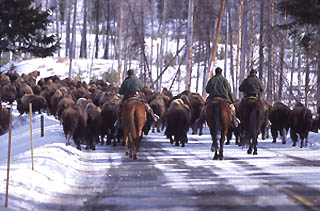
The long battle for relocation results from the fear of harm that the animals can cause on neighboring land, the spread of brucellosis is just one point of contention. Bison are not easy to contain and can cause costly property damage.
Property is the key word. The tribes are to take full ownership of the bison as their property. Hence, tribal members will be responsible for any harm the animals inflict on the property of others.
That makes this transfer different than repopulating the American West with wild Bison. Wildlife are owned by the state. The state, unlike private owners, is not responsible to compensate for the damage the creatures cause.
Therein lies much of the debate for the reintroduction of species: Who pays and who benefits? It is easy to support an idea that suits your preferences and costs you little. Affected property owners, however, may suffer inordinate costs.
Originally posted at Environmental Trends.


